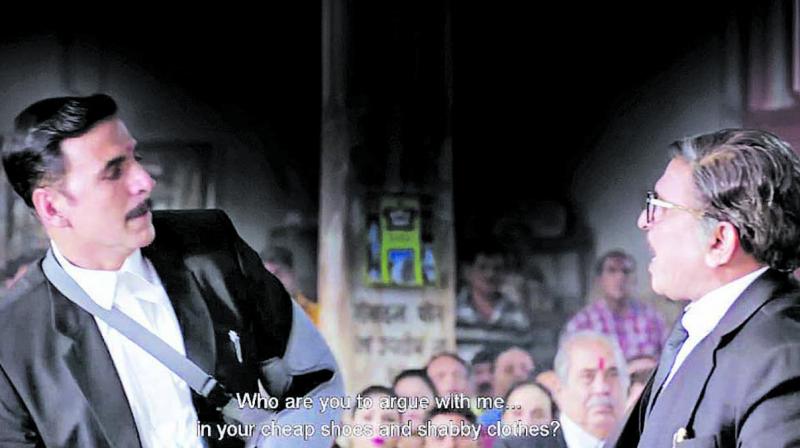Brand new trouble for Akshay Kumar's Jolly LLB 2
Bata has slapped a legal notice on the Jolly LLB 2 team for showing the company in negative light.

It’s been just five days since the trailer of the much-awaited Jolly LLB 2 released and controversy is already knocking on its door. Footwear company, Bata, has slapped a legal notice on the movie’s team for using the name of the company and “damaging its reputation.”
In the movie’s trailer, Annu Kapoor, who plays lead actor Akshay Kumar’s opposing lawyer heaps insult on him by saying “Bata ki chappal pehenkar, tuchhi si terricoat pehen kar, hum se zaban ladata hai? (“You wear Bata slippers and a shabby coat and dare to argue with me?”) Not surprisingly, this has sparked a controversy, as Bata wants these references removed before the movie is released. But do references like these affect the brand negatively?
Prahlad Kakkar, ad and film director, thinks it depends on how the dialogue affects the audience. “If a dialogue is derogatory to the brand, or gives it a bad name, the company has all rights to want to take the reference down. The reason being that certain cult dialogues can become a part of our daily language,” he explains.
When Alyque Padamsee was in school — which was a very long time ago, he laughs — Bata Shoes would make really cheap footwear. “They were like Japanese shoes (Japanese shoes were made of cardboard and would break after mere three or four wears). After the Second World War, the brand tried to change their image — they started making moderate quality shoes,” recalls the Indian theatre personality and ad-guru.
Today, the company is trying to change its brand image yet again. “If the reference is pushing the brand down, then they would definitely have a problem, but on the other hand, if it is pushing the brand up, then chances are the filmmakers would get good money for it. This is how the system works,” he states.
This is, however, not the first time popular product brands have been used to make references in a movie. Earlier, Emami had taken offence to Malaika Arora dancing to lyrics about Zandu Balm in the sultry item song, Munni Badnaam in Dabangg. Emami took the decision to encash on the song’s popularity in an out-of-court settlement with Arbaaz Khan Productions.
Aditya V. Agarwal, director of Emami group, is of the opinion that mutual respect between brands and films is necessary, “We, as a brand, respect what filmmakers do — the creativity, their creative process, liberty and the final creation as well. And so, we as a brand, feel that the filmmaker should also respect the brand value.”
Onir, director of My Brother Nikhil, on the other hand, isn’t a huge fan of censorship enforced by brands. “In real life, we make several jokes on brands all the time, then why not in movies? Situations like these become very politicised when you blow it out of proportion,” he says.
There are some who aren’t completely on board with the idea of self-censorship too, like Sharat Katariya, writer and director of Dum Laga ke Haisha. “When you write you have much bigger challenges to think about, and at that point, brands are the least of one’s concerns. When writing, we try not to offend anyone on sensitive issues, not just brands. For instance, in Dum Laga Ke Haisha, the film was about overweight women, and I worked towards not to make it offensive towards overweight women,” he says.
Prahlad doesn’t understand why films simply don’t refrain from using references of brands. “There are certain movies that use the names of brands with prior permission from the brand and a proper MoU, which expresses a convergence of will between two or more parties. However, there are several films that don’t comply to this. In the last 10 years, companies have grown wiser to know about copyright infringement and legal issues. In that case, doesn’t it make sense for filmmakers to be aware of the same too?” he signs off.

